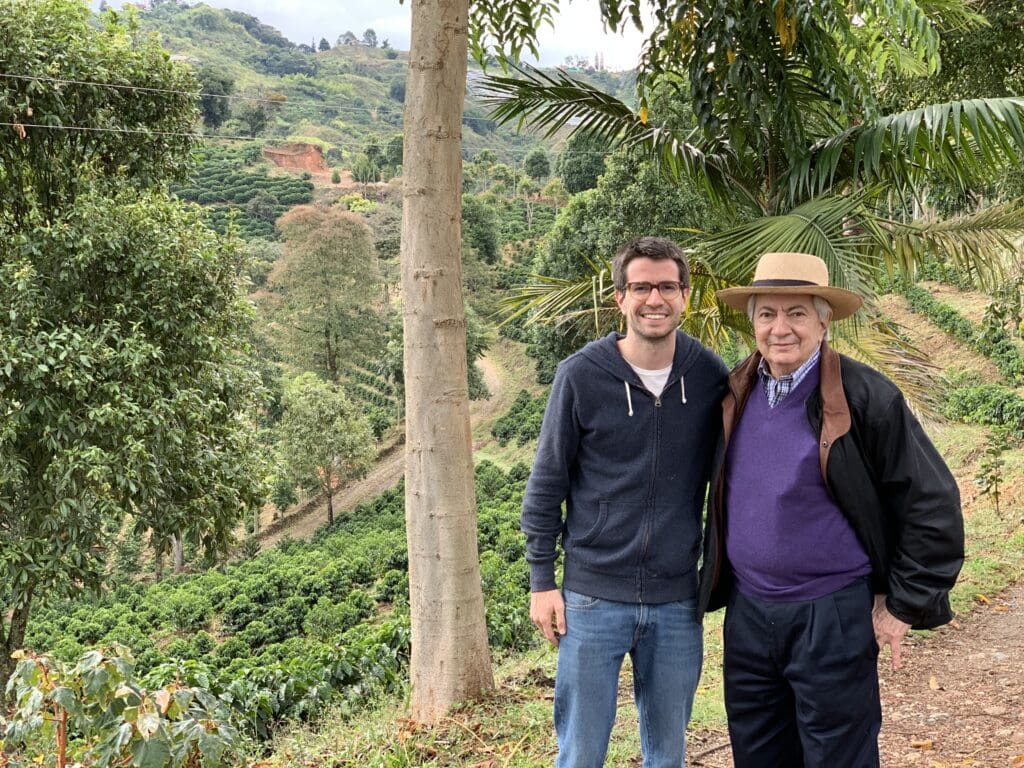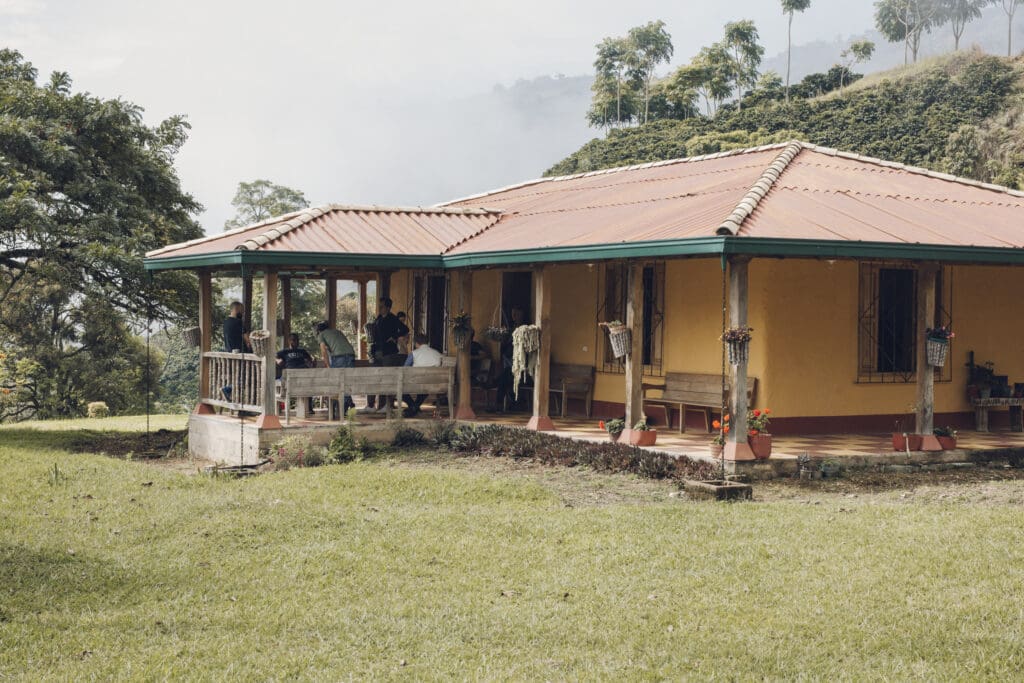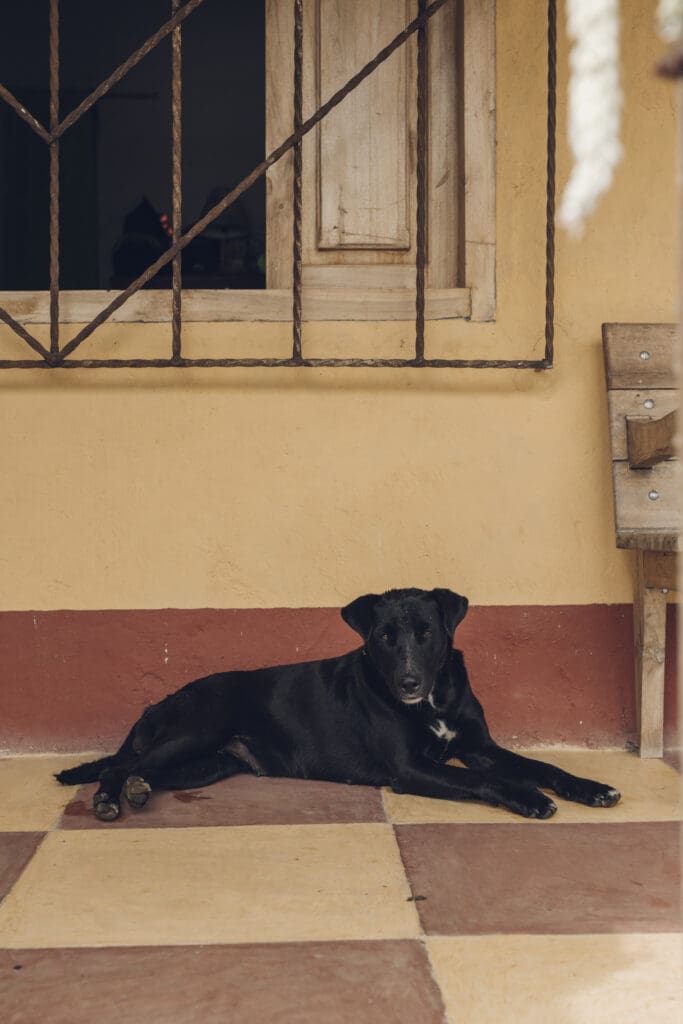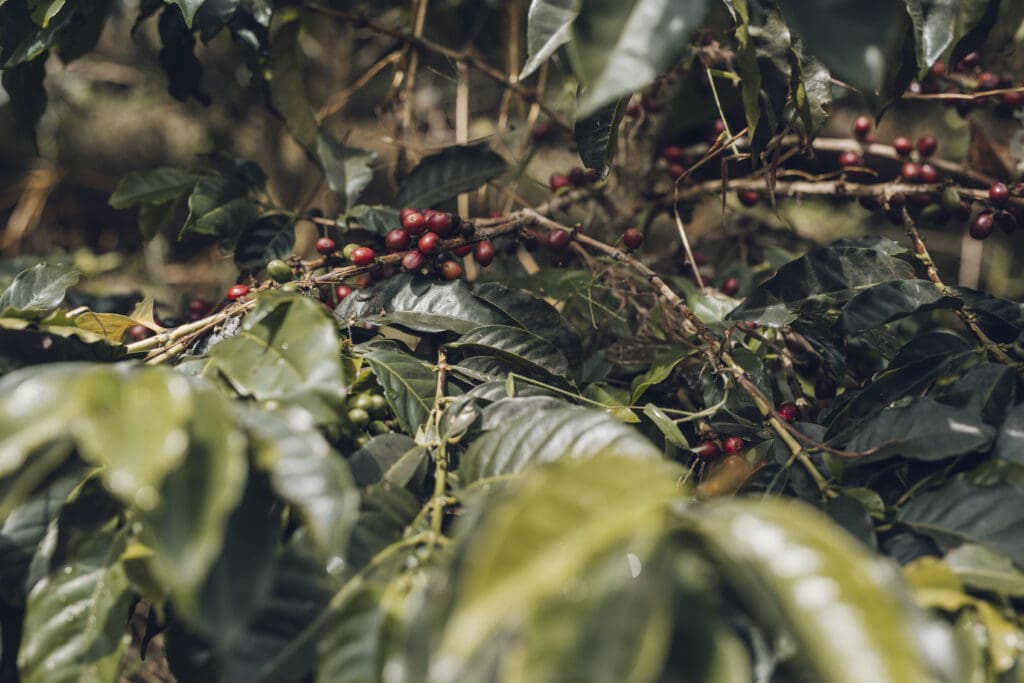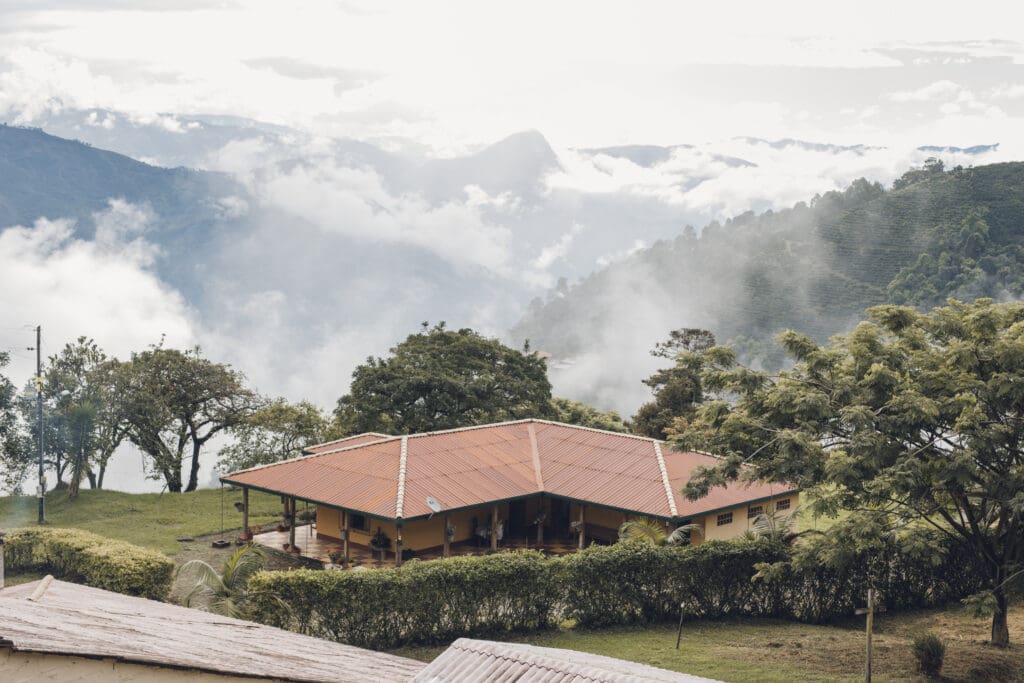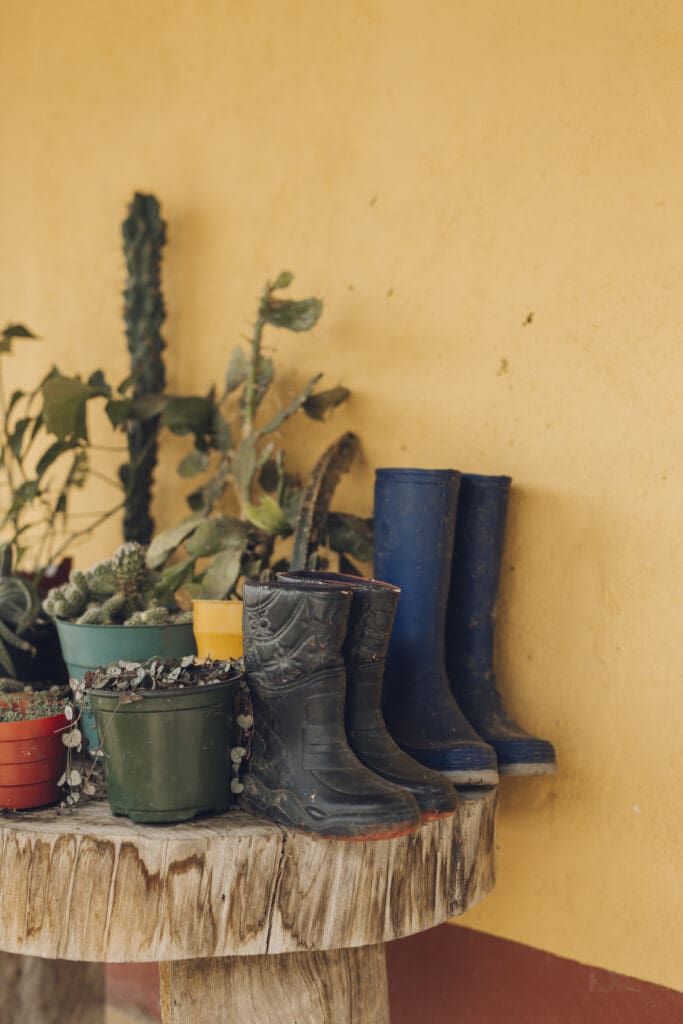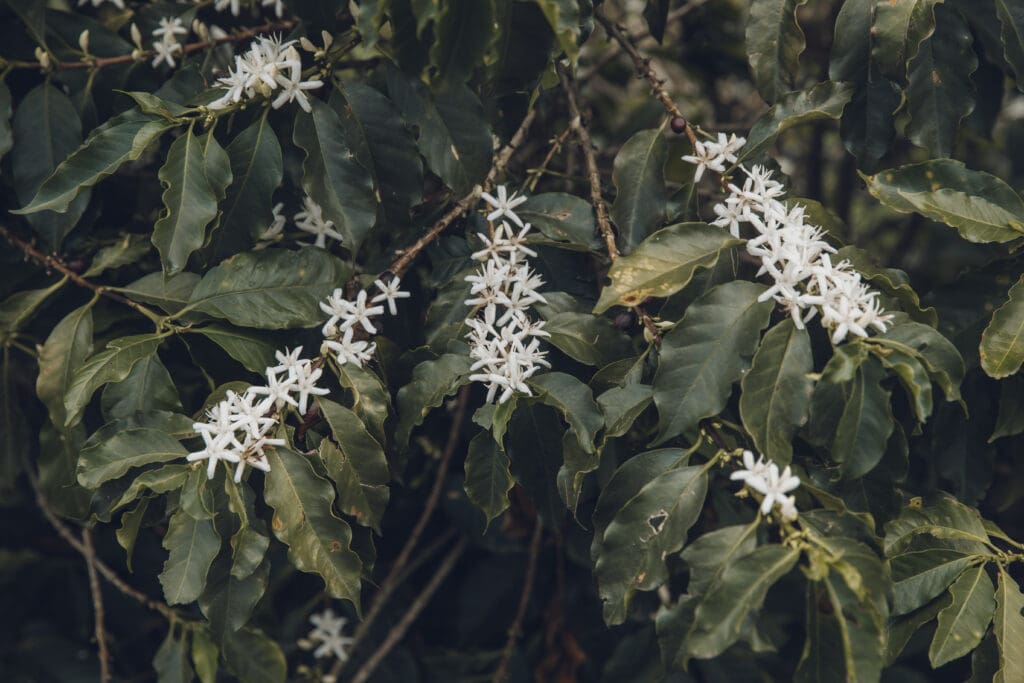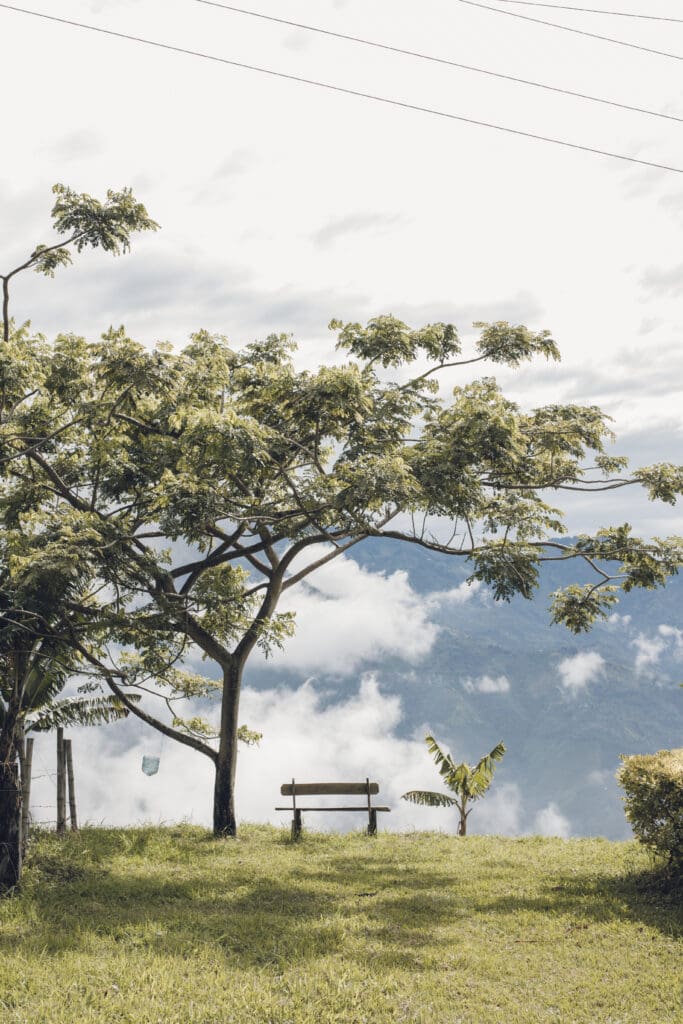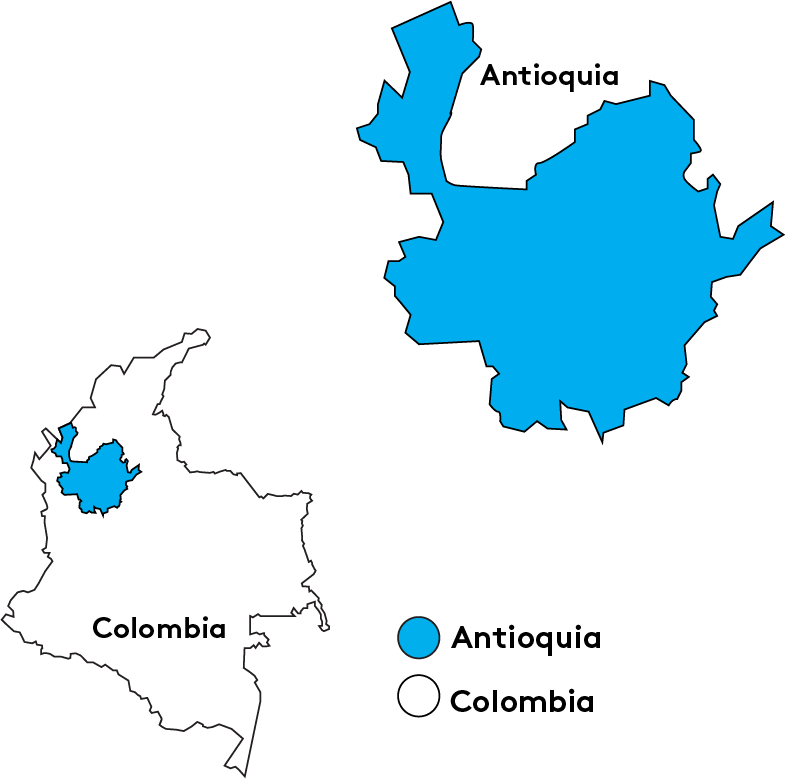Finca Agualinda is owned and operated by the Echavarria Family, who are also responsible for operations at the Pergamino exporting company. Pergamino began not as an exporter, but as a coffee production company started by Pedro Echavarria Sr, who began growing coffee at a small, abandoned farm in the 1970s. His love for coffee grew quickly, and he later expanded the company to the town of Santa Barbara where Pergamino maintains the bulk of its production capacity.
The Echavarria Family acquired Finca Agualinda in 2003, and established it as the heart of their coffee growing business. The farm was planted with Castillo coffee, and the family worked over a two decade period to replant the property’s high elevation plots with varieties known for their quality. Since 2019, they have also worked to plant the Chiroso varieties on some of their plots under 1900 meters.
Chiroso coffee was originally found in the town of Urrao and was grown by Jose Arcadio Caro, Pergamino’s first allied producer in the area. Initially, the short trees were called Caturra Chiroso for their physical similarities to Caturra; however, it was later determined that the variety does not have a relationship with the Typica family like Caturra, but is instead descended from an Ethiopian landrace variety. Jose planted the variety initially for its high productivity potential in cold temperatures, only later discovering Chiroso’s differentiated cup profile. The variety was then made famous by Jose and his neighbor Doña Carmen, both of whom placed well in the Cup of Excellence with the variety.
This lot of Chiroso underwent Honey processing. Pulped coffee was dried on raised beds under plastic for 15–20 days.
